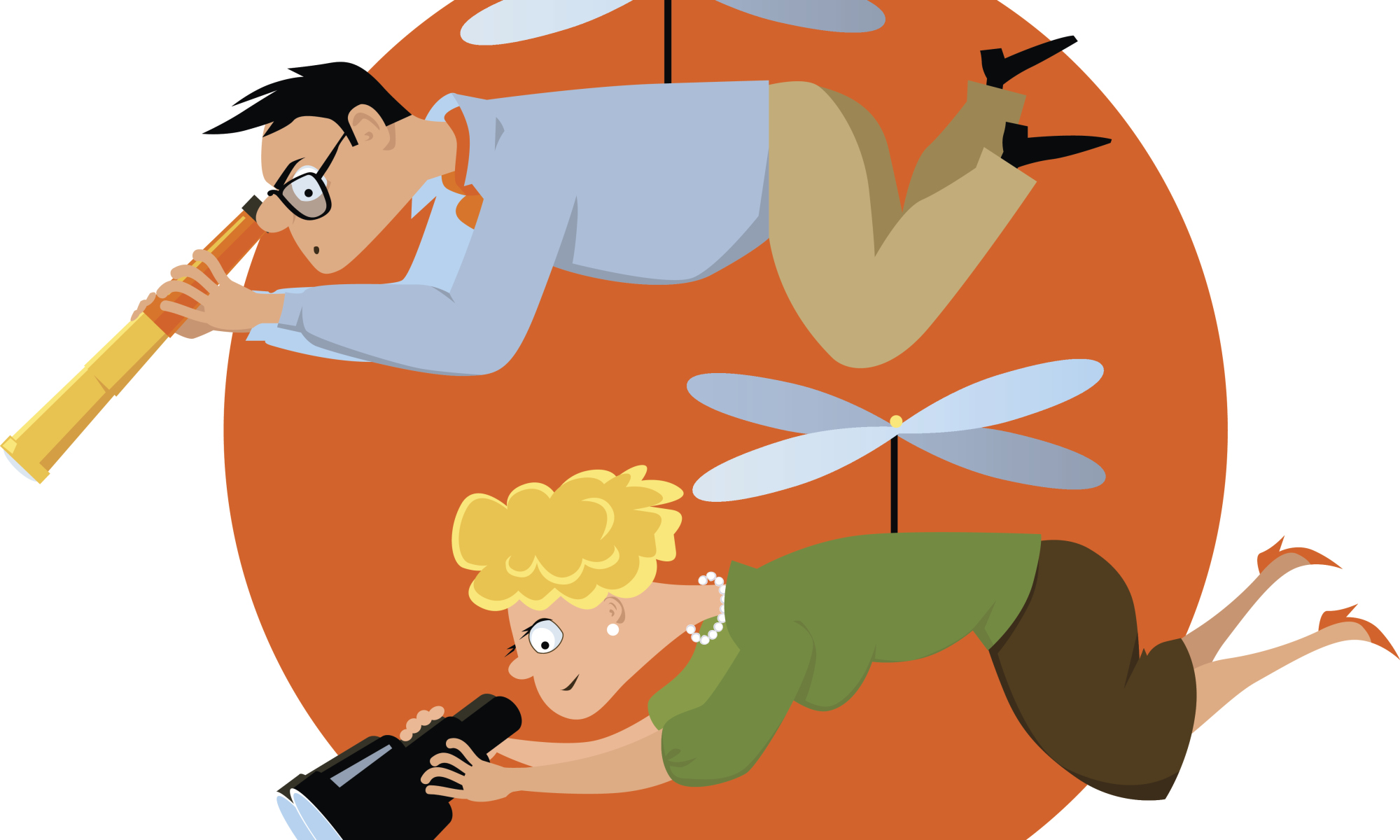You watch over your child’s school work with an eagle eye. Solve his spats. Finish his puzzles. Micromanage his day. Investigate every scrape. Mull over every little illness. His teacher’s number has long since earned a permanent spot at the top of your ‘recently called’ list.

Overprotective couple hovering with a telescope and a binoculars, watching over their children, EPS 8 vector illustration, no transparencies
Some days, it almost feels like you’re trying to raise troubleshooting to an Olympic sport. It’s exhausting. And there’s also plenty of evidence that it’s unhealthy for him too. Psychologists at the University of Washington studied over 200 nine-year-olds and their mums for three years, and found that when a child had pretty good judgment and self-control, a mum who gave too much guidance and skimped on independence raised his risk of anxiety or depression.
So how do you tell when your natural protective instincts have turned you into The Parent from Heli… and more importantly, how do you land your crazy chopper?
Acknowledge it
It’s tough to give up your pilot license after you’ve had it for a lifetime (your child’s). The fact is, parenting is scary, but you can’t let your fears prevent your child from experiencing their childhood. Take that first step, and acknowledge that you’ve been letting your worries rule you. It’s natural to want to keep him close and safe from harm, but your fear of the “what ifs” could be doing exactly that.
Find strength in numbers
Just as your fears are fuelled by talk with other parents, strength and advice can come from them too. “I used to worry that I didn’t worry enough!” Lydia Lau, parent of two, laughs. “This happened especially when chatting with other mums. We were always comparing notes, whether it’s how well they’re doing in class, who’s sick, or what some other parents are doing for their kids.” Now, she makes a point of talking more to those parents whose behaviour she admires, and are mutually supportive of each other in trying to raise resilient, confident, capable and self-sufficient individuals. “We’ve even formed our own support group on what’sapp,” she shares. “We encourage each other to let go of our children’s hands and teach them to fly solo. This way, we also don’t feel alone.”
Treat them as the individuals they are
Yvonne Tan, self-confessed former Mum from Heli, offers, “I learned from my daughter’s preschool teachers. Her entire class addressed their teachers by their first names, and somehow by the end of the term, she blossomed and gained the courage to speak up. They shared that it’s part of their methodology in respecting the children as individuals, and while I wouldn’t go so far as to let her call me Yvonne, I’m trying to do everything else that they did.”
Ease up
Backing off may be tough, but it can be done. Here’re some tips from other parents who’ve successfully made the transition from heli-parent:
- Become a submarine. Instead of being a helicopter always hovering above your kids, ready to swoop in and save them whenever they may need you, be a submarine. You’re close by in case of real danger but out of sight. Your child won’t just run to you as soon as he has a problem and expect you to solve it for him. He’ll try it on his own first, with the reassurance that you are around.
- Create consistency. Talk with the other adults who are responsible for your child, like his caregiver and teachers. Find out what they do when you’re not around, and stick to the same standards at home.
- Give your child a resume. This list of achievements will help both of you track his growing list of skills while lending him confidence and encouraging him to acquire new ones. It will also reassure you that he’s growing up and making progress.
- Teach your child the right lessons. One of the biggest sources of worry – and rightly so – is your child’s safety. By teaching him playground skills and how to do things like dial 999 or run to the nearest adult in an emergency, you’ll feel better about letting him out of your reach.
- Countdown to lift off. Before you convince yourself it’s time to break out the helicopter and fly to your child’s rescue, count down from ten if it’s not a real emergency. Taking a breather will give you a chance to analyse the situation, and in the meantime, your child might actually find the right answer on his own.























